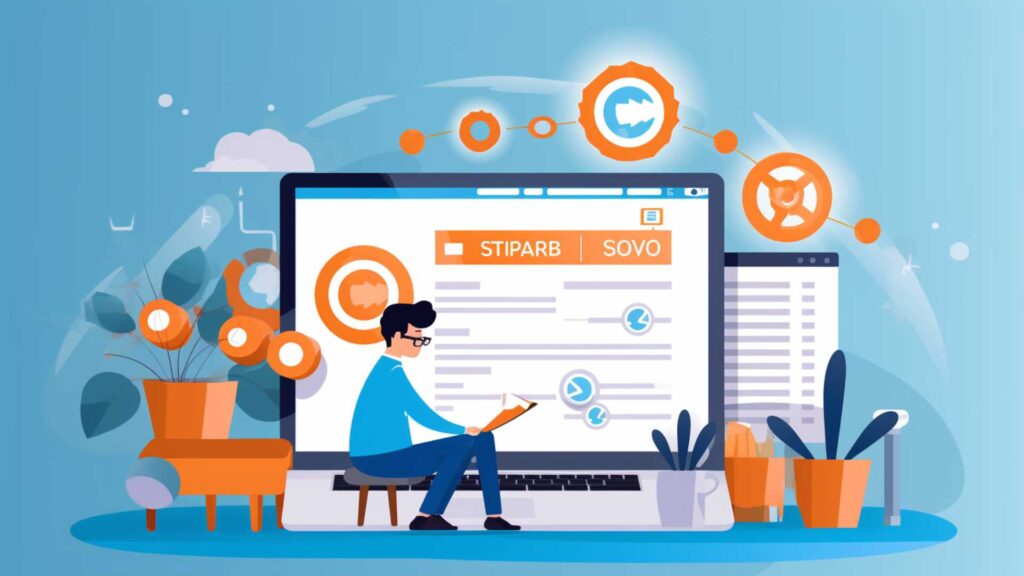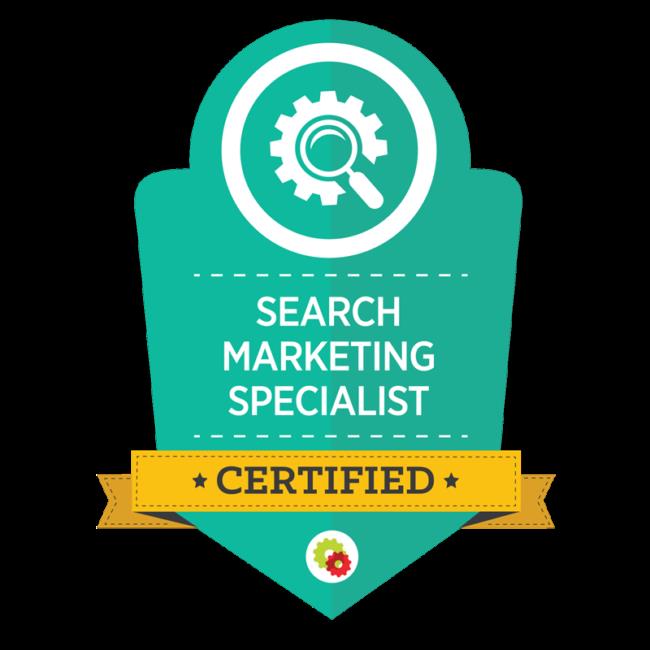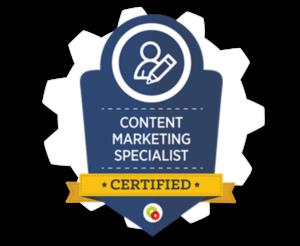
Want to grow your business faster?…without paying crazy amounts on paid advertising?
Organic marketing is the answer. (Keep reading for my secrets).
My name is Connor Gillivan. I’ve been an Entrepreneur for 12+ years scaling multiple businesses to 6, 7, and 8 figures w/ an exit in 2019. Today, I run marketing for my portfolio of 4 businesses.
The majority of my success in business has been through organic marketing.
In this article, I’ll share my top 7 organic marketing strategies.
- SEO
- Partnerships
- Podcast interviews
- Social media
- Content marketing
- CRO
- Email marketing
By the end, you’ll have a headful of ideas to execute for growing your business.
Let’s dive into it!
My 7 Organic Marketing Strategies
In this section, I’ll define the 7 organic marketing strategies that I mentioned and give examples of each so that you can fully understand how they can help grow your business.
1. SEO
SEO is the act of creating content on your website (pages & blog articles) that rank for specific keywords your ideal customer is searching for on Google and other search engines.

For example, let’s say that you run an eCommerce business selling baby clothes. Your baby clothes are organic, custom-made, sourced from the US, and fashionable.
With SEO, you’d want to rank for keywords like:
- “Organic baby clothing”
- “Baby clothes made in the US”
- “Fashionable baby clothing”
By investing in SEO, you can optimize your website, pages, and content with the goal of ranking on the 1st page of search results.
This will drive traffic to your website where you can convert users into email subscribers and customers.
2. Partnerships
Partnerships is a marketing strategy where you team up with other companies in your industry where you’re not competing with one another, but you’re targeting the same ideal customer profile (ICP).
For example, one of my companies is AccountsBalance, a monthly bookkeeping service for agencies, service providers, & SAAS companies.
We have a Partner Program where we partner with 100s of other digital service providers, softwares, tools, and influencers.
To start, we add each other to our Partner pages (exchanging backlinks), we feature each other in our newsletters (brand awareness & lead generation), then we find other ways to send leads both ways on a quarterly basis.

Relationship building turns into brand awareness, visitors to your website, referrals, leads, & customers.
3. Podcast Interviews
Most people know podcasts for listening to them, but there’s another side to it that is extremely beneficial for organic marketing.
When I say “podcast interviews”, I’m referring to the marketing practice of getting interviewed on podcasts within your industry where you can share your expertise, establish yourself as a thought leader, and attract new customers to your business.
For example, my business partner, Nathan Hirsch, has been interviewed on 500+ podcasts in the past 5 years. We have a system where we research top podcasts in our niches where our ideal customers are reading then we reach out and pitch them to interview Nathan. He goes on the podcast & drives leads to our businesses.
When you do this consistently for months, you create a lot of “buzz” around you and your business.
That “buzz” turns into new website traffic, leads, and customers.
4. Social Media
Yes, we all know what social media is, but there’s a specific way to do it for organic marketing that can drive lots of interested customers to your business.
I encourage you to look at social media as a platform where you can establish yourself as a subject matter expert (SME), build a following, and turn followers into paying customers.
Here’s an example. I own and run marketing for 4 businesses and I use LinkedIn as a social media channel to establish myself as an SEO expert & entrepreneur, which drives customers to our companies.

My ideal customer spends time on LinkedIn. I build trust with them through my daily posts & teaching them the SEO & marketing methods that are working best for me.
It takes time, consistency, a good process, and dedication, but social media is an amazing place to reach your ideal customer.
5. Content Marketing
Content marketing is the organic marketing practice of creating high value content that speaks directly to your ideal customer and pulls them into your email list so that you can continue “talking” to them.
Here’s some examples of content marketing:
- Infographics
- Ebooks
- Checklists
- White papers
- Webinars
- Free trainings
Content marketing helps to “pull” your ideal customer into your business so they know you’re an option as they look to solve different problems they have.
6. CRO
CRO stands for conversion rate optimization.
CRO is the act of optimizing your website and all of its pages for converting as many website visitors as possible into email subscribers or paying customers.

You’ve Been Taught SEO ALL WRONG
Become a Certified Search Marketing Specialist and Start Boosting Your Sales by Attracting and Converting Your Ideal Leads Everywhere They Are.
Let’s look at an example. You figure out the first 5 organic marketing channels and you start driving 1,000s of visitors to your website every month. Congrats on that first of all! But does it really matter if none of those people convert into email subscribers or customers?
That’s where CRO comes in. You dive into the design, content, and performance of each page on your website to see how you can convert more visitors into subscribers and customers.
7. Email Marketing
Last, but certainly not least is email marketing. Email marketing is building an owned email list of people that are interested in your business, you, and the products/services that you offer. Then regularly communicating with those people through a newsletter and automated email campaigns to convert them into paying customers.
It’s great to get people to sign up for your email list or newsletter, but if you’re not communicating with them, it’s worthless. You need an email marketing strategy where you’re communicating with them, getting to know them better, answering their questions, and building trust with them.

For example, one of my companies, Outsource School, is focused on teaching business owners how to hire and scale their business with virtual assistants and freelancers from the Philippines. We run a weekly newsletter that provides free advice and strategies on outsourcing to 5,000+ potential customers. We build additional trust with them each week and over time many of them become members.
How to Get Started (w/ Each)
Now that you know the 7 organic marketing strategies that you can use to grow your business faster, let’s talk about some simple, actionable steps you can take to get them started.
1. SEO
Ideas to get started:
- Build a Blog page on your website.
- Commit to writing & publishing 1 new blog each week.
- Target 1 keyword with each blog.
- Make your keywords what your ideal customer would search to find you.
- Make all of your content high quality & value for your customer.
2. Partnerships
Ideas to get started:
- Open a new Google Sheet or Trello board.
- Make a Partner 100. Your top 100 ideal partners.
- Find contact information for all 100. (Or have a VA do it)
- Reach out to them on social media & email.
- Work to build a relationship with them.
- Run content exchanges together.

3. Podcast Interviews
Ideas to get started:
- Similar to the Partner 100, make a Podcast 100.
- Research 100 top podcasts where your ideal customer is listening.
- List out your areas of expertise & value you could add to the podcast.
- Reach out and pitch hosts to interview you.
- Record the interview with the host.
- Improve your interviewing skills as you practice.
4. Social Media
Ideas to get started:
- Choose 1 channel to start with.
- If looking for B2B customers, use Twitter or LinkedIn.
- If for B2C customers, Instagram, TikTok, or Facebook.
- Post 1x per day
- Reply to comments that people leave.
- Build a personal brand around your expertise.
5. Content Marketing
Ideas to get started:
- Brainstorm a list of 5 lead magnets your ideal customer would like.
- Over 6-12 months, make the 5 lead magnets.
- Feature them on your site.
- Post about them on your social media.
- Ask your partners to share them.

Want to get certified in Content Marketing?
Leverage the tools and channels to predictably and profitably drive awareness, leads, sales, and referrals—EVERYTHING you need to know to become a true master of digital marketing. Click Here
6. CRO
Ideas to get started:
- Once you have website traffic, set up tracking with Google Analytics.
- Measure how many visitors you’re converting to email subscribers.
- Once you have a baseline, make a list of improvements you could make.
- Implement them and repeat this every quarter.
7. Email Marketing
Ideas to get started:
- Choose an email marketing software to use: Mailchimp, ActiveCampaign, Constant Contact, etc.
- Start a weekly newsletter that you send out. Same day, same time each week.
- Build a content calendar and get ahead of the schedule.
- Schedule newsletters and get feedback from your subscribers.
Take Action
Organic marketing is a valid and proven way to drive potential customers to your website that you can then work to convert into paying customers.
I’ve been using organic marketing strategies for scaling my businesses for the past 10 years and I continue to be a huge proponent of them today.
You don’t need huge marketing budgets to grow your business. All you need is proven processes, consistency, and the drive to keep at it for months on end.
TL;DR:
1. SEO
2. Partnerships
3. Podcast Interviews
4. Social Media
5. Content Marketing
6. CRO
7. Email Marketing
Sit down and plan out how you’ll get these started for your business.
Take 1 at a time, perfect a process for it, delegate, and then move onto adding another.
By the end of 1-2 years, you’ll have a fully running organic marketing machine that is driving 1,000s of leads to your business every single month.
Have question? Follow me on LinkedIn and DM me with questions!
The post 7 Organic Marketing Strategies to Scale Faster in 2023 appeared first on DigitalMarketer.
Frequently Asked Questions
How can you motivate yourself to be an entrepreneur?
Find someone to motivate you. Ask someone who is working hard for his goals about how they did it.
Ask for help, listen, learn, and most importantly, keep it coming. Look up successful people to emulate.
You can do whatever it takes to be that person. Learn from them. Take their lead. Follow their lead.
Keep moving. Keep moving. Never stop learning. Never give up.
Don't let anyone tell your that you aren’t capable. You don't have to believe that there is no way.
You might fail, but it doesn't necessarily mean that you have failed. Failure can make you stronger. To learn more. To push harder.
Failure is only another step on your journey to success.
So go ahead and get started. Start today to move closer towards your dreams.
You don't have to wait!
What are the benefits of having an entrepreneurial mindset?
There are many benefits to being an entrepreneur. The first one is that you become self-reliant. You stop relying on other people.
This makes you independent and free to pursue your dreams. This helps you establish relationships with other entrepreneurs as you share common interests and challenges.
You gain confidence. You're constantly learning new things as an entrepreneur. This allows you to be flexible and adapt quickly. You won't be stuck in a rut if you think outside the box.
When we all start our businesses, we're no longer bound by the rules and regulations placed upon us by society. We're free to decide what we want to do and how we want to live.
We can choose either to follow the crowds or go against them. We have the option to choose success or failure. You have the choice to fail or win.
It's exhilarating to have freedom. It comes with a fair amount of responsibility. This is because you are accountable for everything happening within your company once you have taken on this role.
You must be able to take risks if you want success. Don't be afraid to try new things. Your goal will be achieved if you are open to learning from your mistakes.
So, keep these lessons in mind when starting your journey.
Remember:
- Entrepreneurship can be a way to live your life.
- You are the boss when you own your business.
- Be wary of following trends.
- Success doesn't come in money; it comes in freedom.
- Your personal and professional lives must be balanced.
- Set clear expectations.
- Always be truthful with your team.
- It is important to remember that if something is to happen, it must be done.
What motivates entrepreneurs?
We are motivated by passion. However, we are driven by passion and a strong desire to create meaningful things that make a real difference. To make a difference for our loved ones as well as ourselves.
To give back. To give back. To leave behind a legacy.
We do it because we love what we do. Because we feel compelled by God to live our lives fully and succeed in things that matter.
We are driven by a sense and purpose that cannot be satisfied with money alone.
It is important to find a way that combines business and pleasure. Entrepreneurship becomes more than a job.
This is why I love helping entrepreneurs succeed. My goal is to empower them to achieve their financial freedom and leave a lasting impact on the world.
My life is proof that creating value is the best thing. The sharing of your knowledge and expertise to the rest.
It doesn't suffice to have a great product. To understand your customers and what their needs are, you need to first get to know them. What they are looking for.
Doing so will help you to always improve your offering. You will provide more value.
Offering more value will result in more customers. Customers will buy more of your products and services, so you'll have more customers. Plus, you'll generate more revenue if your products and services are more popular. You will eventually be financially independent if you have more revenue.
You see, money does not always equal everything. It's a means to an ends. It is not the end in and of itself.
It is not enough to focus on money if your goal is to live a full and happy life. It is important to make a positive difference. Contributing. Leaving a legacy. Making something of value. You create something unique. It adds meaning and purpose to your life, as well as those of others.
Entrepreneurship requires risk-taking. It doesn't necessarily mean that you have to follow certain rules. It means being flexible. Adapting. Adjusting. Improving.
If you're true to yourself and hold onto your values and integrity, you will not fail.
Entrepreneurship is a calling. A vocation. A chance to make a difference. To create wealth. To create history.
All of these are key to being the best version possible of yourself.
You will not be stopped.
What are the motivations behind entrepreneurs?
There are three main motivations for entrepreneurs. Each type is unique and has its strengths, as well as its weaknesses.
Motivation that is not internal, such as the desire to earn more money, is the most common type. This motivation often stems from financial concerns.
External motivation is driven mostly by personal interest, ambition and desire. These types of motivation are very goal-oriented.
Inner motivation is much more rare. Individuals with internal motivation do not necessarily seek out wealth; instead, they pursue other goals such as self-development, fulfillment, or service to others.
People with inner motivation are often called "passionate" when they find satisfaction in what they do.
Finally, intrinsic motivation can be described as the least common form of motivation. Intrinsic motivation refers only to people who are motivated by the satisfaction and enjoyment that comes from working towards a particular goal.
Internal motivation is much more motivating than external or intrinsic motivation.
The inner motivation is intrinsic. It is based on the belief that people have certain talents and abilities. These talents and abilities allow them to accomplish things that no one else could possibly do.
It is satisfying and fulfilling to realize our potential and talents. We feel important.
In other words, intrinsic motivation is what makes us happy. It is knowing we can do anything we put our mind to. This makes us happy.
This feeling of accomplishment keeps you going no matter what the circumstances are.
You might even find it boring if you don’t enjoy what your doing.
If you want to know more about entrepreneur motivation, click here.
What makes an entrepreneur succeed?
There are two types, those who make their money and those whose time is theirs.
The difference is in how they approach business. Those who make money focus on making more money while those who make time focus on making more time.
Money is driven by financial freedom. Their goal, and their only goal, is to get rich and stay wealthy.
They are driven by greed and fear. They do not care about the future because they know that once they achieve their goals, they will be well-equipped for life.
This type of person is often referred to as a hustler. They put the bottom line first and look for ways to increase revenues without sacrificing quality.
Others make it a full-time job. These entrepreneurs are driven to succeed by their passion. They desire to create something meaningful and lasting.
Their motivation is altruistic. They are motivated to do great work. They are passionate about creating services and products that make a difference.
They are often called dreamers. They are driven by vision and inspiration. They are aware that success is hard work, persistence and dedication.
But the most important characteristic of these entrepreneurs is that they are creative. They are constantly seeking out opportunities that haven't been done before.
They thrive in the unknown. This is why they are willing to spend hours researching an area of interest. Because they enjoy learning new things, they are always open for new ideas.
This is why they are so adaptable to change. They will take on any challenge and get dirty. They will not tolerate mediocrity.
Which type of entrepreneur do you identify as? Do you have a burning desire to make money or a burning desire for meaning?
If you answered yes to both questions, then congratulations! You are a successful entrepreneur.
Over the years I have had the opportunity to meet many successful entrepreneurs. What struck me most was their passion for what they do.
Entrepreneurs are not defined solely by their monetary wealth. They leave behind an impact that defines them.
Steve Jobs, who was not rich but well-known for his philanthropic efforts, is an example. He did not own a home until his 40s.
His ability create products that changed the course of history was his greatest source of wealth. And this is what makes him unique.
Your job is not to make wealth. It isn't to build empires, or amass political power.
Your job is to establish relationships with customers, partners, and other people. To build trust. To inspire others to succeed.
To make a difference. It's your legacy. That's your legacy.
If you are interested in building a legacy that is meaningful, let's get started.
Social Media University teaches you how passive income can be earned online. We'll teach you how to market your business, so it grows automatically.
What is your best motivation in life?
What is my favorite motivation in life? Let me tell ya. My best motivation in life is to help people feel better about themselves. To help them see that they are extraordinary, because they are. That they are worthy of love, because they are.
That they deserve happiness, because they do.
I'm here reminding people that being happy about yourself is the most important thing. Nothing. And I will do everything in my power to change the world.
Feeling good about yourself makes us more open-minded, compassionate and kind to others. We stop judging each other based on superficiality and instead start seeing the person inside, which is really cool.
Motivating someone by showing them they have everything within themselves is the most effective way to get them to do so.
Although they may not be aware of it, that is why they have been struggling with something so much. They knew that deep down they had the power within to heal themselves.
They needed the right environment. The right support system. And the right mindset. However, they forgot to see that.
It is not their fault they lost sight of it. They were too busy trying find the root cause of the problem. They were desperate to fix it and didn't realize that they actually had all the necessary tools.
They didn't realize they were the ones who had the answer.
This is why I remind you that you can create something entirely new. It is easy to tap into your inner genius.
All will be well once you do that. It's easy to make your dreams come true.
You see, every person has their unique superpower.
All we need to do is learn how to use them.
Statistics
- That means for $150,000, you could have bought 10 percent of Airbnb." (entrepreneur.com)
- “Life is 10% what happens to you and 90% how you react to it.” (oberlo.com)
- "If you improve by just 1% every single day, in several months, you will have improved by 100%. (carolroth.com)
- Our 10 years of research also shows that 75% of mentored entrepreneurs increased their revenue, and 82% of their businesses survived the first two years. (carolroth.com)
- “If you look to lead, invest at least 40% of your time managing yourself – your ethics, character, principles, purpose, motivation, and conduct. (americanexpress.com)
External Links
[TAG23]
[TAG25]
- This is the inspiring quote Jeff Bezos keeps on his fridge
- Richard Branson, a Billionaire: These are my top 10 secrets to success
[TAG28]
[TAG31]
- 101 Best Inspirational Quotes For Entrepreneurs
- SpaceX employees face almost impossible goals from Elon Musk
How To
Are You a TRUE Entrepreneur?
An entrepreneur is someone who creates value for others and himself. He is risk-averse, he creates businesses, and he earns money.
He doesn't wait for someone to come along and give him an opportunity; he finds opportunities himself. He's a self-starter, a doer, a leader, and a winner.
A true entrepreneur knows how to make decisions quickly and effectively. He can see the problems clearly and then solves them creatively.
His view is that there is no distinction between business and life. To him, entrepreneurship isn't a job; it's a way of life.
True entrepreneurs do not fear failing. Failure is a part of success. True entrepreneurs embrace change and thrive in pressure.
They are determined to achieve success and growth. Most importantly, they love what they do because they enjoy creating value.
They aren't only looking to build profitable companies but they also want to make their lives and those of their families successful.
Next time you are feeling unmotivated, or confused about starting your own business, think this:
"Am I a true entrepreneur?" If you answered yes, then go ahead and take action. If you answered no, then perhaps it's time to rethink your career path.
Did you miss our previous article...
https://consumernewsnetwork.com/technology-news/do-you-know-your-branding-basics-think-again






